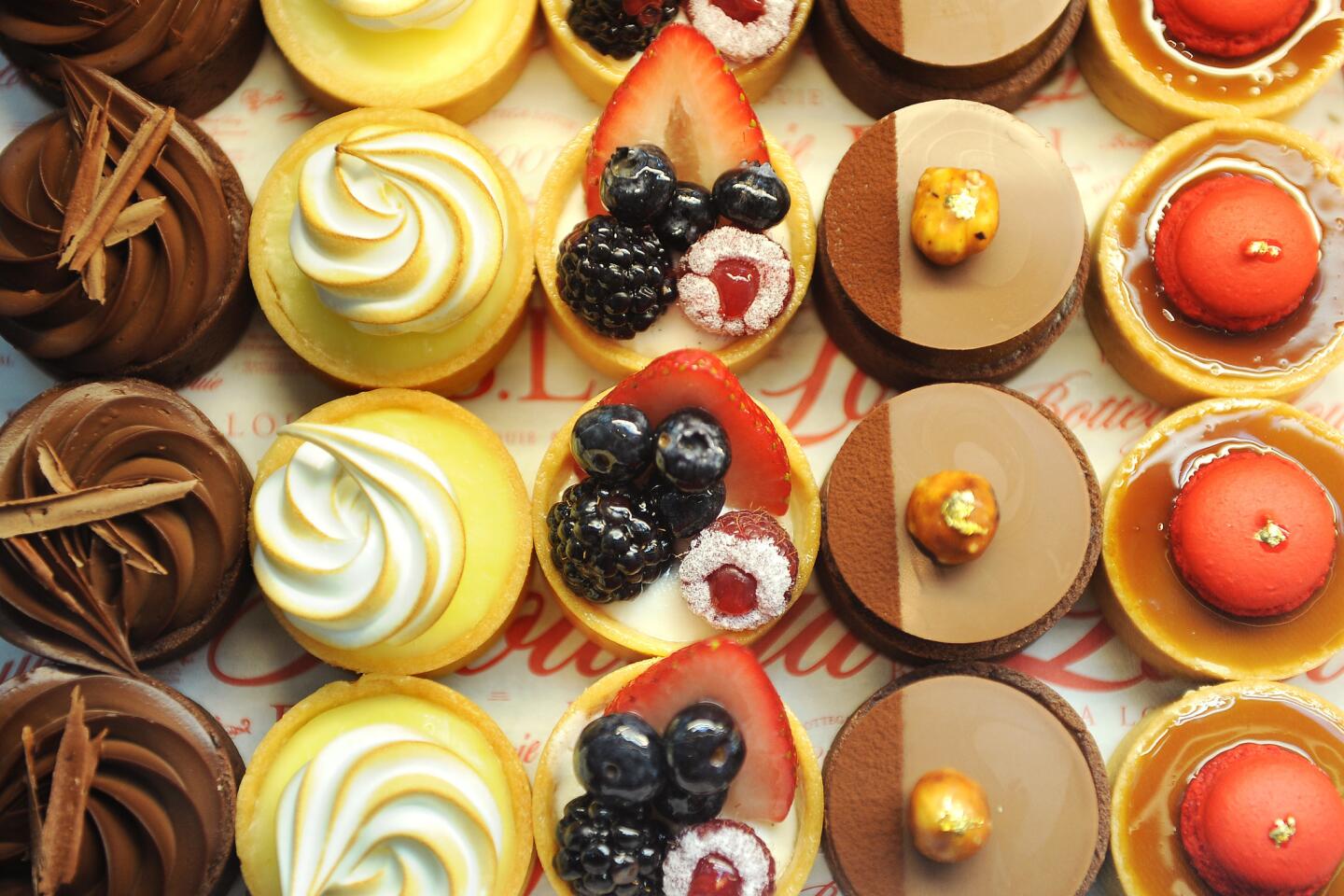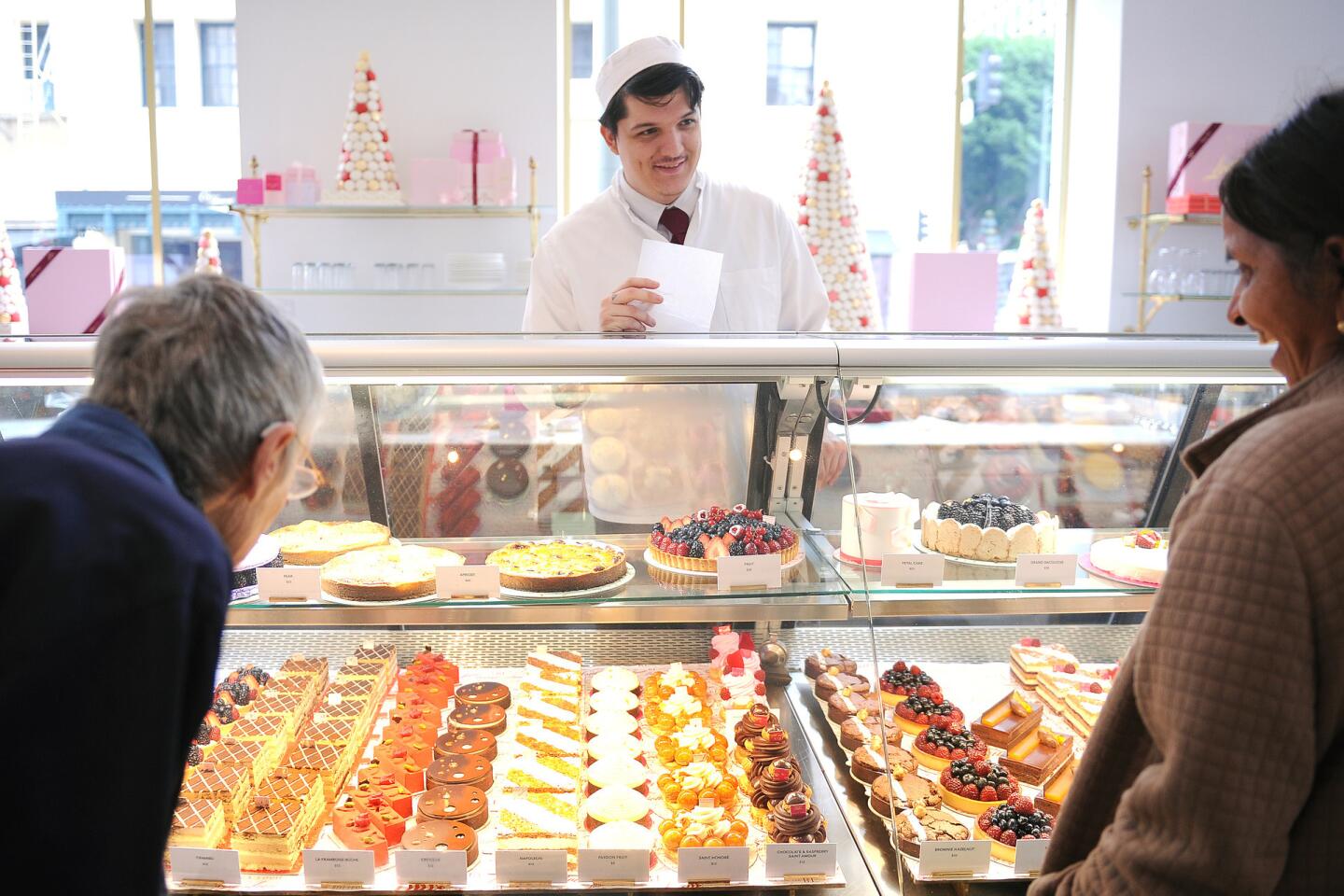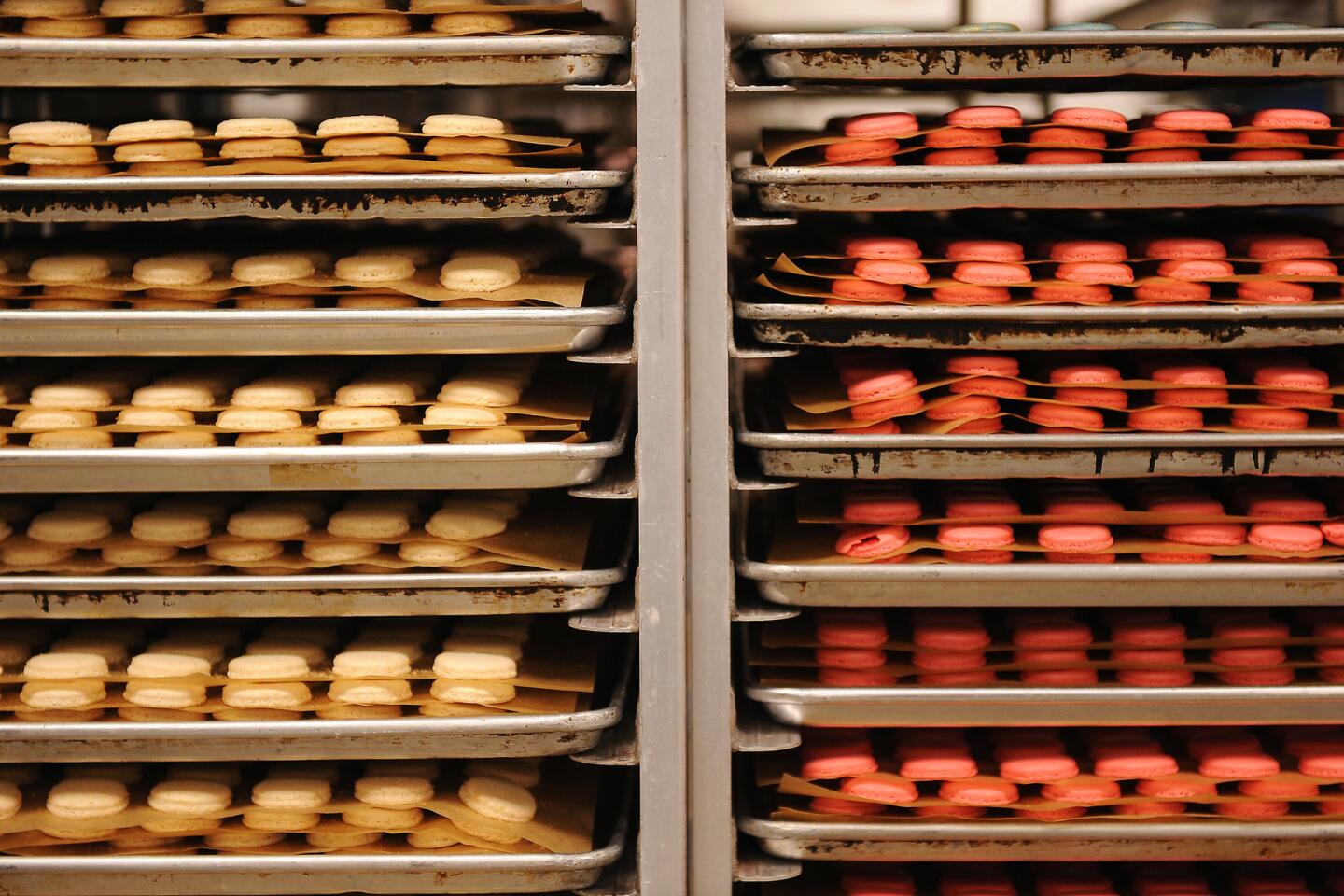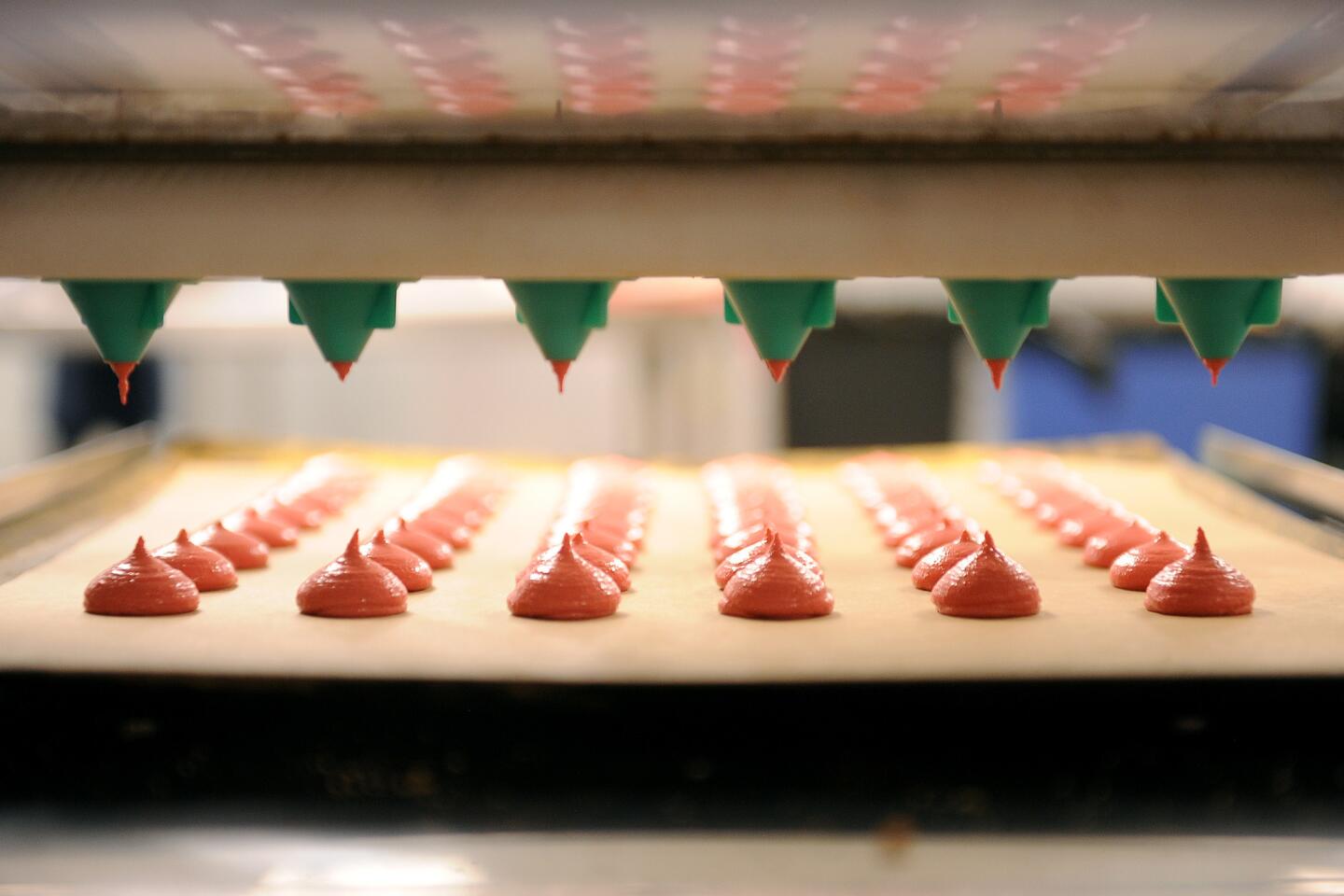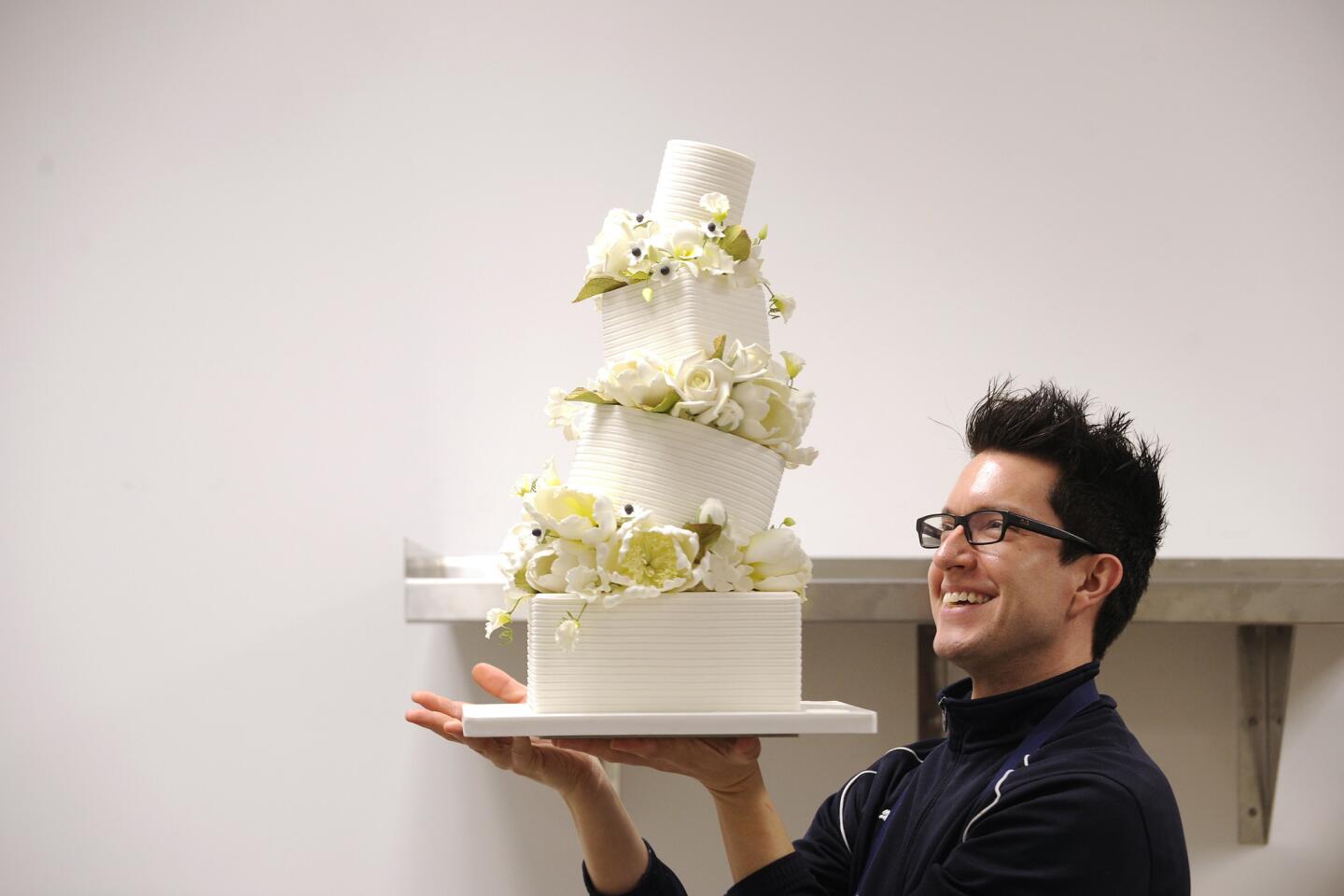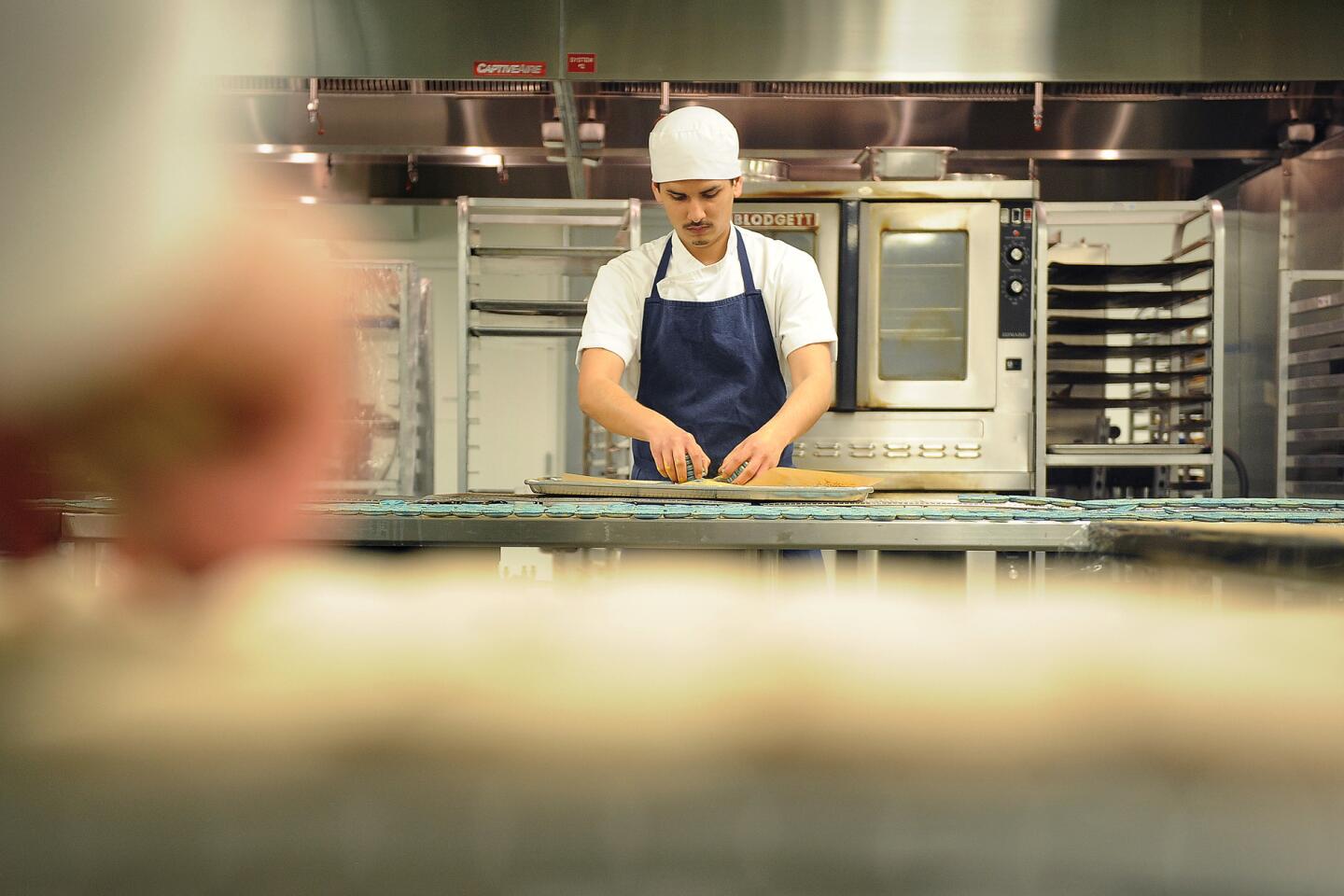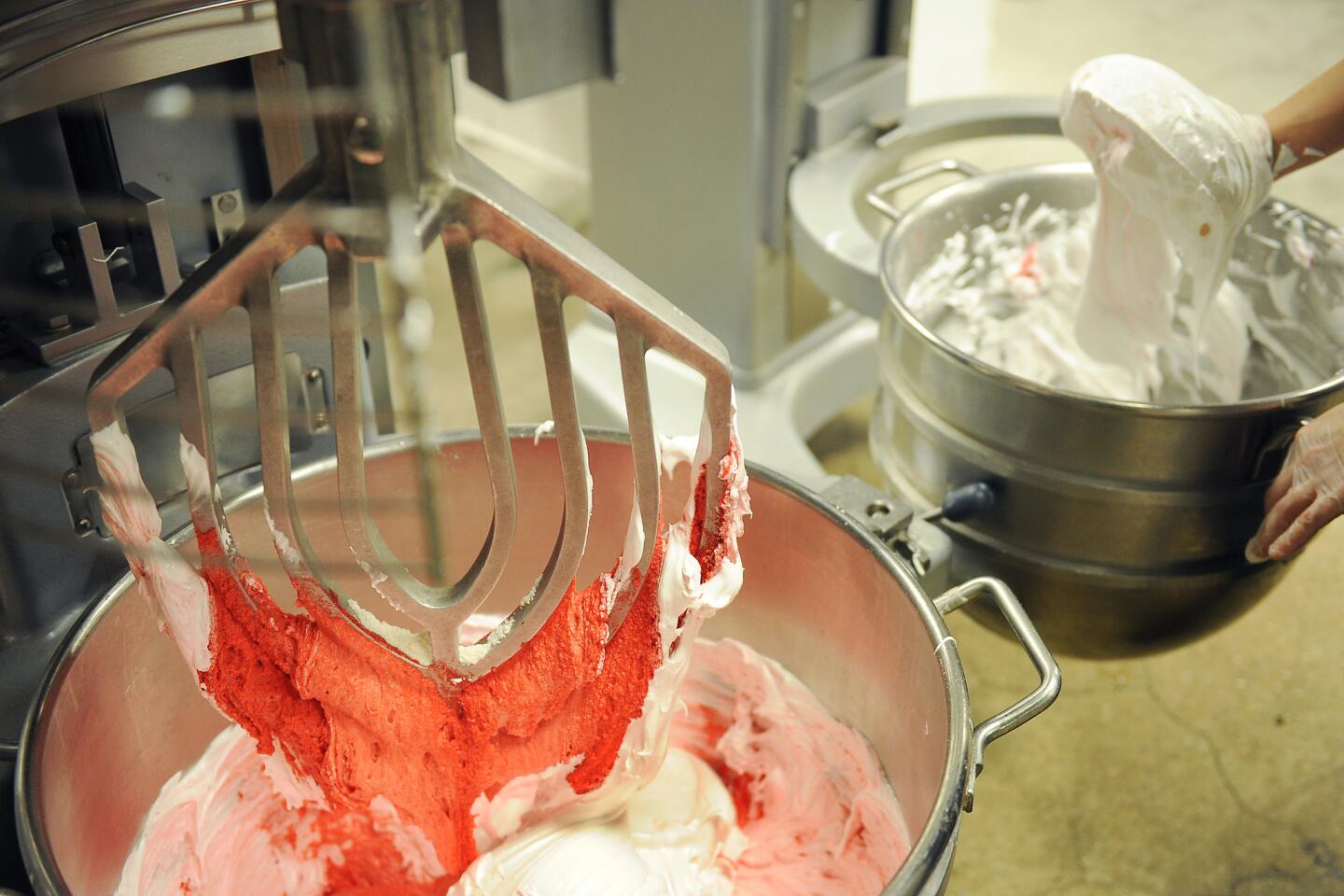See the massive underground pastry kitchen where Bottega Louie’s macarons are made

What happens at Bottega Louie’s underground dessert production kitchen.
- Share via
Bottega Louie is an enormous hatbox of a restaurant, a pale, vertical, light-filled space in downtown Los Angeles — whether by accident or design; it’s a former Brooks Bros. emporium — that is ideally suited to showcase beautiful patisserie.
Walk through the doors and you’re confronted by a giant pastry case loaded with macarons, hundreds of them in columns, an abacus in a rainbow of colors. This time of year those macarons are also built into pink and red croquembouche towers, in the windows and on most available surfaces, as well as beribboned stacks of boxes, also in shades of pink for Valentine’s Day.
Look inside the cases and you’ll see baroque pastries, ornate and complicated, the sorts of things that Marie-Antoine Carême might have dreamt up once but that are harder to find in today’s rustic bakeries: opera cakes and sachertortes, verrines and Napoleons, Saint Honores and Tropeziennes, and — a testament to how popular the French sandwich cookies are these days — enormous macarons the size of hubcaps.
The engines that produce all this are not here, behind some paneled door that once held a thousand double-breasted suits, nor upstairs in the lofts above the restaurant (you could live above all those pastries!), but across the street, and down an elevator, in a 15,000-square-foot basement dessert factory.
Although Bottega Louie opened in 2009, the enormous production kitchen is only about 14 months old, a vast network that includes a cake room, a climate-controlled chocolate room, a refrigerated marble table for working with laminated dough, six ovens and two aisles of shelves just for boxes and ribbons. There are separate walk-in refrigerators for the pastry and the baked goods, and one that’s just for all those macarons.
See the most-read in Life & Style this hour >>
This factory has a staff of more than 55, and operates seven days a week and almost, but not quite, 24 hours a day. And although they make bread and all the pasta for the restaurant, as well as the meticulously constructed pastries, it is the macarons that take center stage down here. Five pastry chefs who are dedicated to making the macaron shells begin their work at 3:30 a.m.; the additional five who are dedicated filling-makers begin at 1 p.m.
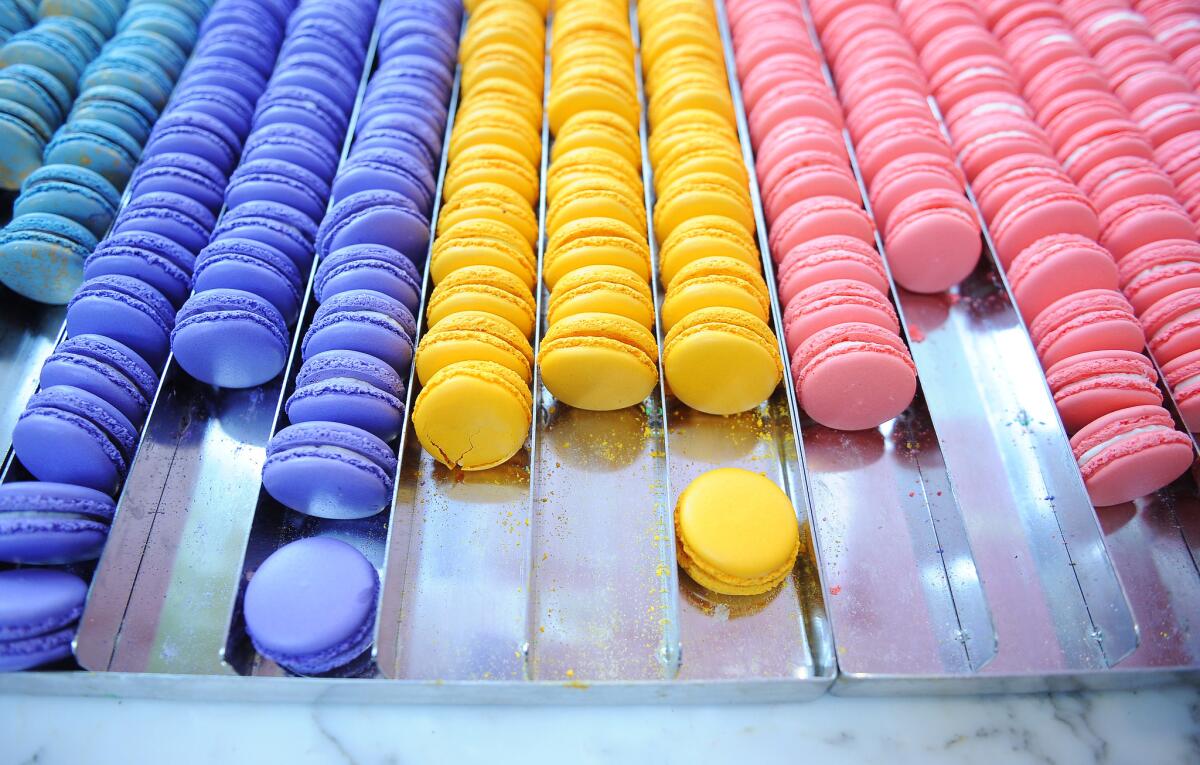
Macarons are displayed at Bottega Louie in downtown Los Angeles.
“It’s not Nabisco here,” says Alejandro Luna, Bottega Louie’s executive pastry chef, a native of Venezuela who has worked in pastry kitchens in Paris, Singapore, Spain’s Barcelona, New York City and Las Vegas, and who has been at Bottega Louie for two and a half years. “We’re not sandwiching them like Oreos.” Instead, the thousands of macarons are filled by two depositors, the only machine used in making macarons here — unless you count the ovens, points out Luna. And then each of them is sandwiched by hand.
Valentine’s Day: Recipes, restaurants, treats and more!
Think about this for a moment, and maybe get your own abacus — one that’s not made of little French cookies. Luna says that the staff produces more than 10,000 shells every day, and fills them into more than 5,000 cookies, usually with three different flavors each day. “It takes a village,” says Luna, with a straight face, sitting in his subterranean office next to the dishwasher and looking out past the forest of speed racks filled with baked macaron shells.
And what’s this like on Valentine’s Day? “Oh my God,” says Luna. “Wow. That’s a topic for discussion. All this goes through the roof — the chocolate, our caramel boxes — it’s a crazy volume.”
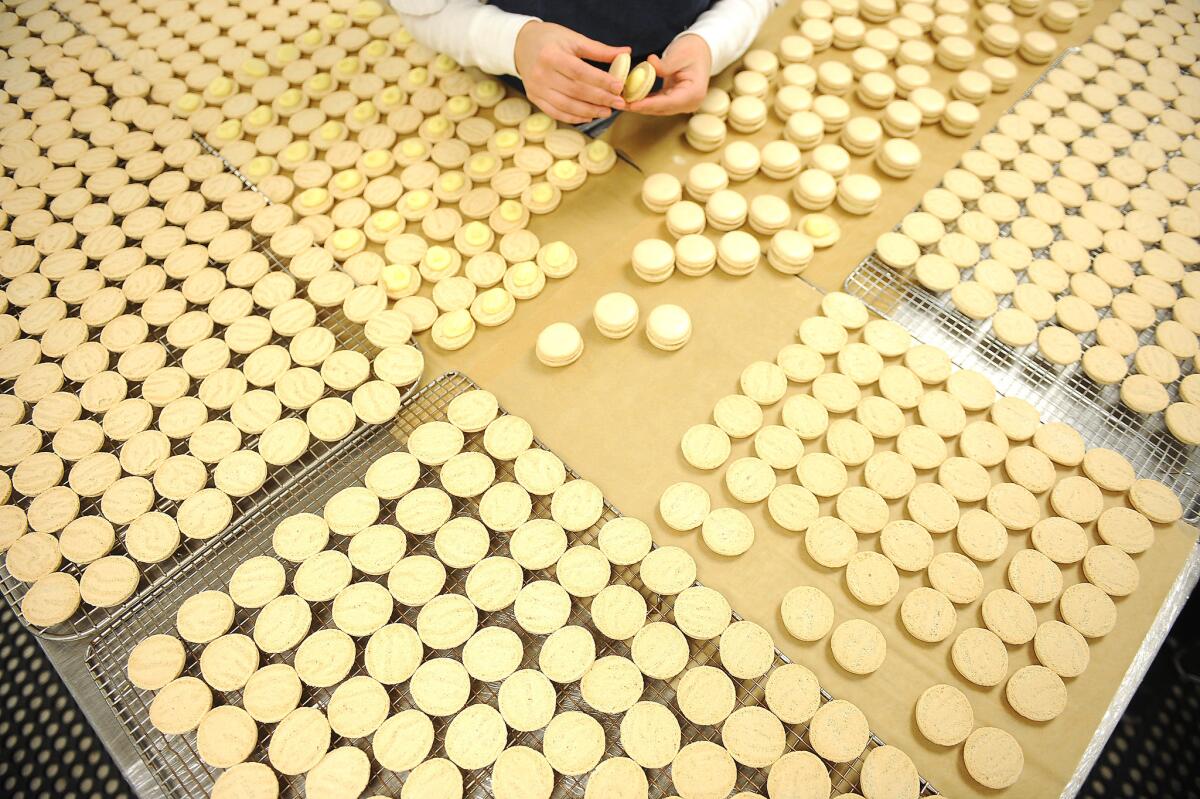
Desiree Ramos sandwiches the pairs of macaron shells after piping at Bottega Louie’s pastry kitchen in downtown Los Angeles.
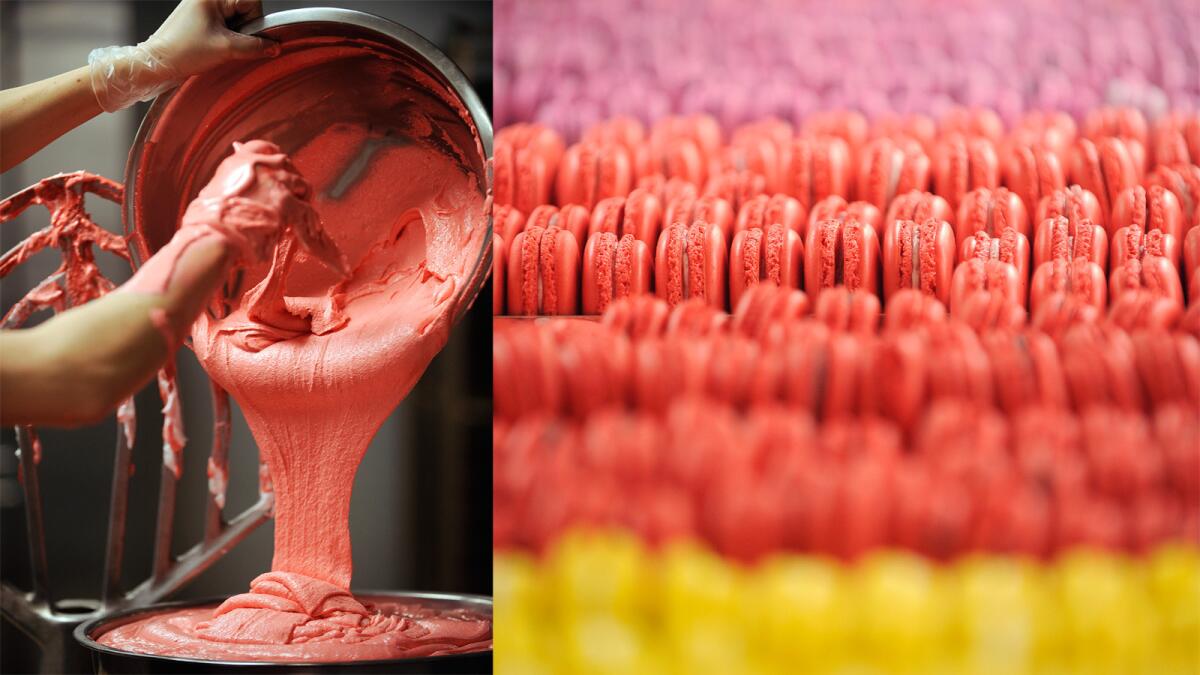
A worker, left, scoops a mix of batter, meringue, color and almond flour out of a mixing bowl for macarons at Bottega Louie’s pastry kitchen in downtown Los Angeles. The finished sweets, right, are displayed in colorful rows at the restaurant.
Although Luna declined to give specific macaron numbers, he furnished what amounted to a shopping list. (Willy Wonka’s shopping list, maybe.) Last year, the pastry kitchen went through 31,000 pounds of butter, 2 million eggs, 42,000 pounds of powdered sugar, 44,000 pounds of almond flour, 18,000 quarts of heavy cream and — drumroll, please — just under 15 tons of chocolate. This week, gearing up for Valentine’s Day, he says, it will go through maybe 7,000 strawberries, and something like 45 flats of raspberries.
There is a particular science to life in a macaron factory, of course: a rhythm and order and time tables. The pastry chefs make 15-20 batches of macarons every day, which are then aged in rotation, the shells for a couple of days, the completed macarons for two days, in their own walk-in. And the macaron production is color-coded, so that, for example, the reds and the pinks are done in the same day, the basement rooms turning into a kind of Valentine box.
“We’re not very seasonal,” says Luna, walking down an aisle filled with pink and red ribbons wound like electrical cords in an Edison factory. “But we’re very holiday-driven.”
ALSO
Otium at the Broad museum is L.A.’s most ambitious new restaurant in years
Pomelos, grapefruit’s sweeter and mellower relative, have a wealth of flavor
More to Read
Eat your way across L.A.
Get our weekly Tasting Notes newsletter for reviews, news and more.
You may occasionally receive promotional content from the Los Angeles Times.
